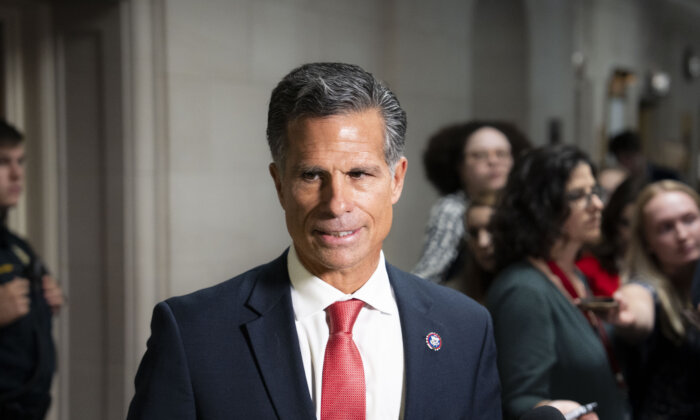Republicans are challenging the constitutionality of the ‘Bidenbucks’ executive order, urging the Supreme Court to consider Pennsylvania state Republicans’ lawsuit against President Joe Biden’s order that increases government involvement in voter registration and mobilization. Critics have dubbed the programs outlined in the order as “Bidenbucks,” similar to “Zuckerbucks” from Facebook co-founder Mark Zuckerberg’s injection of $400 million into state election programs in 2020. The executive order calls for federal agencies, including the prison system, to support voter registration and participation efforts, but critics argue that Democrats and Republicans may not benefit equally. The lawsuit contests the order as unconstitutional and questions the legitimacy of government-led voter registration drives. The case is currently pending in the U.S. Court of Appeals for the 3rd Circuit, with the lead petitioner being Pennsylvania state Rep. Dawn Keefer (R). The lawmakers argue that the order violates their rights under the U.S. Constitution and undermines their power to regulate elections. Despite their efforts to expedite the case, the Supreme Court denied the motion for expedited consideration. Led by U.S. Rep. Dan Meuser (R-Pa.), a group of federal officeholders filed a friend-of-the-court brief urging the Supreme Court to hear the petition, emphasizing the importance of fair elections and the potential risks of unchecked executive authority in influencing elections. The importance of elections in government is emphasized in the statement, “And this is particularly true when it comes to elections as elections are the primary way in which government officials obtain and retain their power.” The president is unauthorized to compel all federal agencies to engage in voter registration and participation, as stated in the brief. This misuse of authority poses a threat to the fairness of elections and could potentially politicize the White House. It enables one political party to manipulate elections in their favor. The brief also advocates for state lawmakers to challenge the executive order. The Biden administration chose not to respond to the petition filed on May 28, leaving room for the court to request a brief on the matter.
A left-wing election law website, Democracy Docket, highlighted the state lawmakers’ attempt to revisit the Independent State Legislature Doctrine, which was previously rejected by the Supreme Court in a case involving North Carolina Republicans. This doctrine asserts that state legislatures have the power to regulate federal elections without judicial interference. If accepted, this theory could limit election regulation to state legislatures only. The Keefer petition does not explicitly mention this doctrine or propose its adoption by the Supreme Court.
The debate over the Constitution granting state legislatures sole authority in setting rules for federal elections has sparked controversy between Republicans and Democrats. The Supreme Court previously ruled against this doctrine in Moore v. Harper, emphasizing the role of state courts in applying constitutional restraints to legislative actions. The timing of the Supreme Court’s review of the Keefer v. Biden petition remains uncertain.
Beth Brelje and Kevin Stocklin have contributed to this report. Please rephrase this sentence.
Source link






